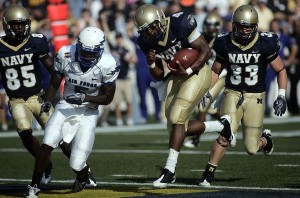Posted on
March 28, 2018 by
John Harris
 There are so many sports out there that require having a professional team. However, in order to be able to build and maintain a successful team one does not only need talent. They also need a lot of determination and good spirit. If you want to play basketball, football or baseball you need a good team – otherwise, your coaching efforts will go unnoticed. Nonetheless, a lot of people are wondering what makes a regular team a successful one. Training a sports team is a challenging job, but it is very rewarding at the same time.
There are so many sports out there that require having a professional team. However, in order to be able to build and maintain a successful team one does not only need talent. They also need a lot of determination and good spirit. If you want to play basketball, football or baseball you need a good team – otherwise, your coaching efforts will go unnoticed. Nonetheless, a lot of people are wondering what makes a regular team a successful one. Training a sports team is a challenging job, but it is very rewarding at the same time.
The way you train your sports team has several positive impacts on their results. That’s because training motivates athletes to become better, boosts up their running efficiency and it makes their bodies a lot stronger. At the same time, their capabilities as athletes are polished and enhanced. No matter the result at the end of a game, the positive experience of coaching outweighs the episodic moments of distrust, uncertainty or fatigue that arise after a long season. Nonetheless, if you keep having bad feelings about your teams or you feel stressed out, and nothing seems to be going right, there might be something else to blame. Failure is not always the fault of the coach, but there are some strategies to make team management more successful.
Always Communicate
Communication is one of the most important factors in people’s lives. Nothing is possible without communication. Yet, constant communication is expected at all times. Back in the day communication was a lot different. Coaches would tell parents and kids were practices were, and they had to show up no matter what. Nowadays, busy family schedules or crowded facilities require constant communication. Communication can take so many shapes or forms these days. Coaches can send a single message, either a text or an email, to the whole team, instead of calling a million people. Therefore, communication makes the team stronger, and it is an essential element of sports team management. Read the rest of this entry →
Tags: sports teams
Category
General, sports management
Posted on
July 19, 2017 by
Dixie Somers
 Many coaches and sports enthusiasts talk about being a good “team player” but aren’t always clear about what exactly that means. Having the right skills and attitudes when working with others on a team can mean the difference between just being another member of that team and being a true team player. When your entire team is composed of true team players, then the abilities of your group are transformed and expanded. You have the opportunity to develop these skills and attitudes and help foster them across your entire team.
Many coaches and sports enthusiasts talk about being a good “team player” but aren’t always clear about what exactly that means. Having the right skills and attitudes when working with others on a team can mean the difference between just being another member of that team and being a true team player. When your entire team is composed of true team players, then the abilities of your group are transformed and expanded. You have the opportunity to develop these skills and attitudes and help foster them across your entire team.
The Right Attitude
One of the cornerstones of being a team player is having the right attitude. This usually means being positive at all times. Most people can be positive when times are good, but those who are really team players remain positive when things are tough, after failure and when things go wrong. They are able to share this positive attitude with others and keep them motivated through the hard times. Whether your team wins or loses, your stabilizing attitude helps them see the positives or lessons that can come out of the experience.
The attitude of being a true team player is also displayed in how you relate to the accomplishments of others. When you are as excited about another player’s accomplishment as you would be for your own accomplishment, then you are starting to act like a team player. A true team player draws no distinction between themselves and their team. Every player’s accomplishment or skill is shared and celebrated.
Trust and Responsibility
A true team player is someone who has learned to balance the concepts of trust and responsibility with those around them. People come to trust a team player because they knew that person is going to be responsible and carry through. Real team players don’t try to do everything. They don’t try to play every position perfectly or promise, or expect, to carry the whole team. Instead, they balance what they do and understand their own limitations so they don’t take on what they won’t be able to finish or do well. This makes them more reliable and trustworthy. Other team members feel comfortable relying on them and depending on them.
On the flip side, a true team player is also capable of placing their trust in others and having confidence in their decisions and abilities. The true team player may act as a sort of mini-coach, recognizing the strengths and weaknesses in others on the team and helping them maximize those strengths while minimizing those weaknesses. This ability is critical to team strategy and cohesion. A team player is always practicing strategic thinking skills. They consider not just about what they themselves should do, but what everyone on the team should be doing.
Once another player’s role is set and their skills established, the true team player builds on that. Instead of trying to be the all-star, the true team player helps the entire team shine. In this way, the true team player exemplifies responsibility on both sides of the table. They are both responsible themselves and foster responsibility in those they play with. Read the rest of this entry →
Tags: sports teamsteammates
Category
Football, sports management
 There are so many sports out there that require having a professional team. However, in order to be able to build and maintain a successful team one does not only need talent. They also need a lot of determination and good spirit. If you want to play basketball, football or baseball you need a good team – otherwise, your coaching efforts will go unnoticed. Nonetheless, a lot of people are wondering what makes a regular team a successful one. Training a sports team is a challenging job, but it is very rewarding at the same time.
There are so many sports out there that require having a professional team. However, in order to be able to build and maintain a successful team one does not only need talent. They also need a lot of determination and good spirit. If you want to play basketball, football or baseball you need a good team – otherwise, your coaching efforts will go unnoticed. Nonetheless, a lot of people are wondering what makes a regular team a successful one. Training a sports team is a challenging job, but it is very rewarding at the same time.



